What is an anxiety disorder?
Occasional feelings of anxiousness are normal during stressful times. For people with anxiety disorders, however, this worry or fear doesn’t go away and symptoms intensify and interfere with your daily life. Not all anxiety disorders are the same. In fact, there are a few different types of anxiety disorders including generalized anxiety disorder, panic disorder, and phobia-related disorders, according to the National Institute of Mental Health (NIMH). Read on for the signs and symptoms of anxiety disorders.
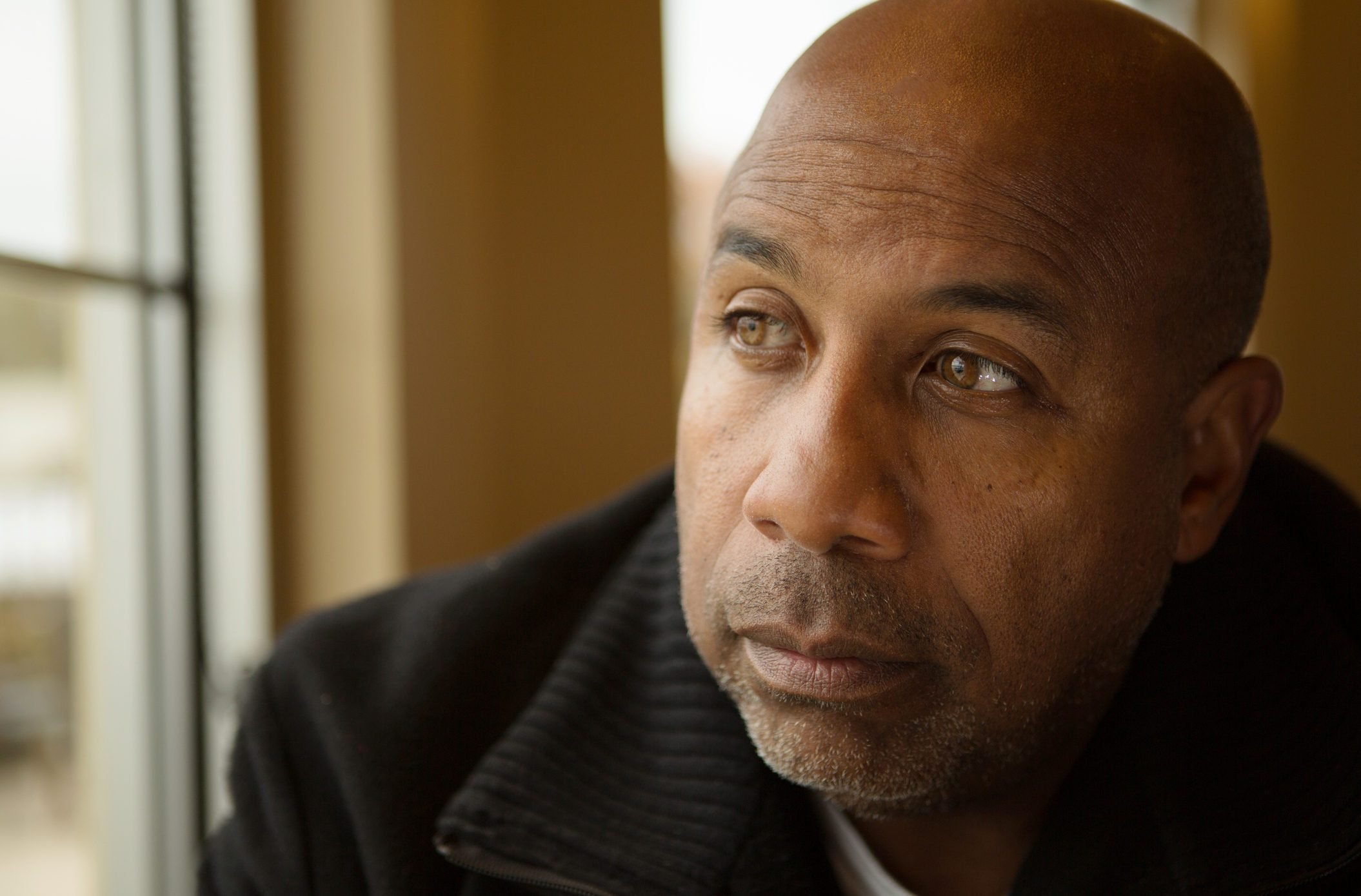
Your worrying is no longer “helpful” at all
A certain amount of worry helps people get through their day—after all, it’s that little bit of pressure you feel that motivates you to complete tasks and to keep your life in order. However, too much worry could be one of the symptoms of anxiety disorder, the most common mental illness in the United States, according to the NIMH. “Worrying enough to heighten your awareness that you have a test and that it requires studying, that’s good, and that’s adaptive,” says Aaron Fisher, PhD, assistant professor of clinical psychology at the University of California, Berkeley. “If, though, your worry is so great that it blows right past preparation and actually freezes you in your tracks and you don’t study because you’re so worried that you feel frozen or stuck, that’s problematic.” Think about whether your anxiety is helping or hurting you. If it’s doing more harm than good, it might be a sign that you could be living a better life without as much of it. Consider trying these trusted home remedies for natural anxiety relief.

You’ve always been a worrier, but you just experienced a major life transition
While anxiety disorders can surface at any age, many researchers track specific traits that patients display throughout life, even at a young age. “Anxiety disorders tend to start actually quite young, and typically they’re observable in young children and adolescents. People who have generalized anxiety disorder will describe themselves as always having been a worrier,” says Danielle Keenan-Miller, PhD, director of the psychology clinic at the University of California, Los Angeles. “For other people, they cope quite well and never experience significant anxiety until there are major life transitions for them or other kinds of stressors.” Many will begin experiencing an abnormal amount of symptoms of anxiety after big life events like taking a new job, having a child, becoming a single parent, or moving.
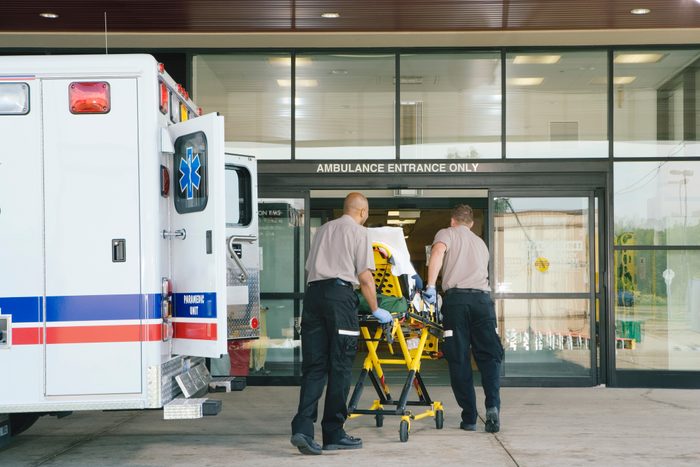
You recently lived through a traumatic event
While some psychologists don’t categorize post-traumatic stress disorder (PTSD) as an anxiety disorder, experiencing an especially negative or frightening experience can have a significant impact on someone’s anxiety levels. “Even if it’s not to the level [of PTSD], people can also develop new worries after a traumatic life event,” says Keenan-Miller. “Some people, if they have a car accident, will become quite worried about driving.” Find out the 7 silent signs of high-functioning anxiety.
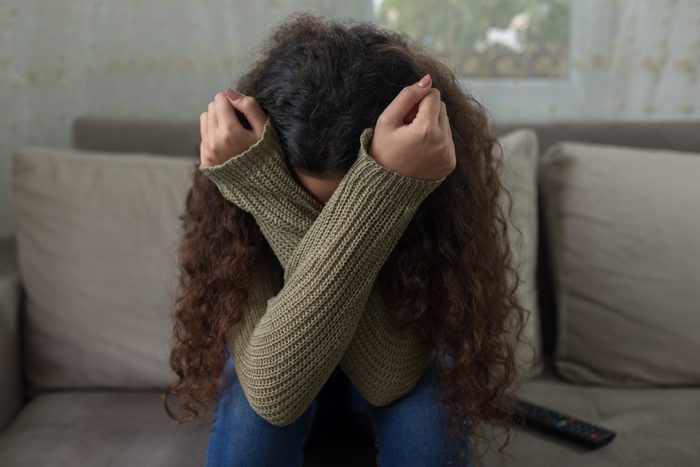
You’ve had one or more panic attacks
Fisher emphasizes that one panic attack does not necessarily indicate symptoms of anxiety disorder, as panic attacks are a normal, evolutionary response to extreme fear. “A lot of people have panic attacks, way more people than have panic disorder,” says Fisher. “It’s important to remember what a panic attack is: It’s a full application of your fight-or-flight response. That is an evolutionarily adaptive function.” When the accelerated heart rate, pain, and extreme fear that accompany a panic attack justify treatment is when someone begins experiencing these panic attack symptoms without understandable reason, or they fear the panic attacks themselves. For that reason, one of the most effective psychological treatments for panic disorder is exposure therapy, which entails exposing oneself to panic attacks and their triggers enough to work through fears directly.

You shape your life around your fears
According to Ann Kring, PhD, a professor of clinical psychology at UC Berkeley, many people with anxiety disorders operate well without realizing they have them because they avoid facing what worries or scares them. “For some people, they’re living their lives, and maybe they’re not going outside or they’re avoiding certain situations but they’re doing just fine,” says Kring. “It doesn’t necessarily feel like it’s interfering with their lives until all of a sudden something pops up and they’re invited to do something and they decide not to do it.” When your anxiety starts detracting from your ability or willingness to live your life fully, treatment might enable you to live a richer life.
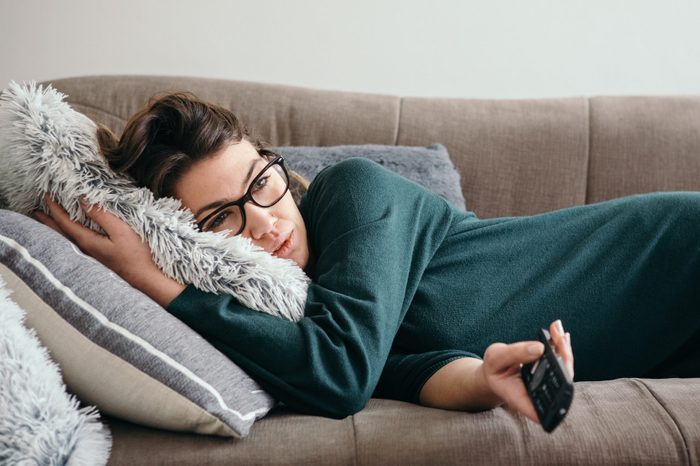
Your anxiety keeps you from social functions you’d otherwise want to attend
Getting nervous in front of a crowd is very normal, and so is stage fright before a presentation or speech. But when simply being around other people becomes difficult or nerve-wracking, it might be a sign of social anxiety. “If you find that every time you have to be around other people your heart rate is accelerating and you feel kind of flushed and nauseous or something like that, then that’s a different thing,” says Fisher. “You’re getting to a different level or consistency of how anxious you’re getting that’s not necessarily connected to a specific event or a specific threat.” Here’s how joining a social anxiety support group can help.

You experience physical symptoms, too
Many sufferers of anxiety disorders, especially those with generalized anxiety disorder, will visit the doctor wondering about physical pains like headaches, stomachaches, and back pain, explains UCLA professor of clinical psychology Carrie Bearden, PhD. “People are confused, they keep going to the doctors, they don’t know what’s wrong,” says Bearden. “If you have this constant worry as well as these physical symptoms, then we would start to think that it’s an anxiety disorder and that the physical symptoms are related to that.” Physical symptoms of anxiety as simple as constant hunger and bad posture can be signs you’re headed for an emotional breakdown. Doctors typically evaluate these physical symptoms to see if there is another medical cause before anxiety. Find out if anxiety causes high blood pressure.
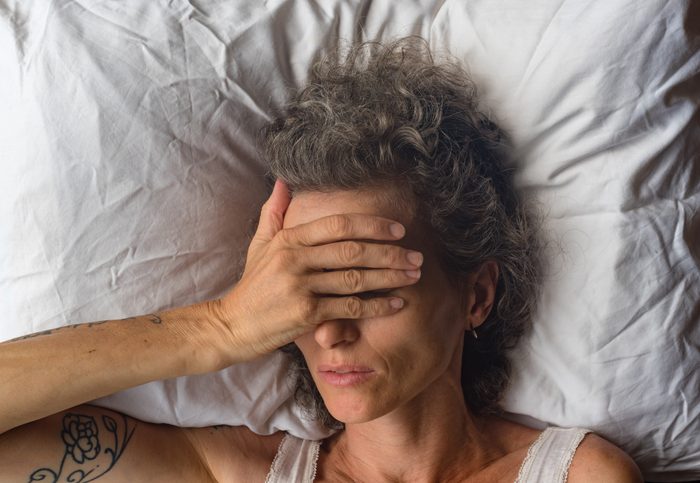
You often have trouble sleeping
Many of us have experienced at least one sleepless night thanks to anxiety about something in our lives, but when insomnia starts to become a regular occurrence, it’s unhealthy. “If you don’t sleep a lot the night before your first marathon, that’s probably fine,” says Keenan-Miller. “But if you don’t sleep for weeks because you’re worried about an upcoming race, even if what you’re thinking about is a real stressor, you probably don’t want that to go on for a long time. It’s disruptive to people’s life functioning.” Find out the 9 things everyone needs to know about anxiety.
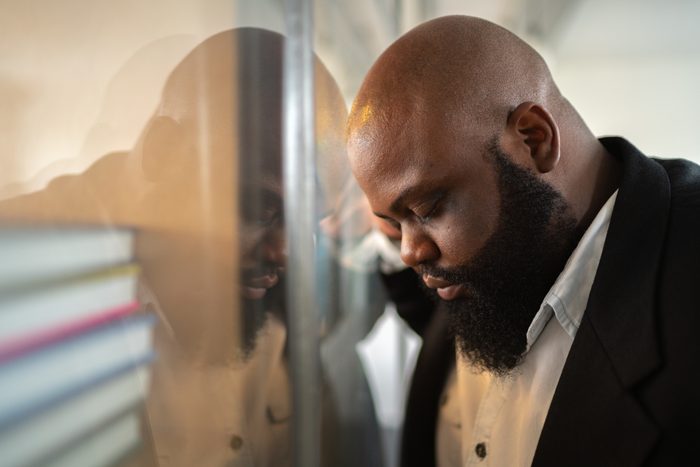
Your anxiety is causing you significant distress
Psychological disorders all occur along a “continuum of human experience,” says Fisher, meaning that all of us experience, and are meant to experience, some of these symptoms of anxiety every once in a while. The most important deciding factor in whether or not your anxiety has become a disorder worth treating is whether it’s causing you significant distress, or impairing you from being able to live your life. “I would start encouraging people to notice whether they’re really stressed and/or do they have a noticeable impairment,” says Fisher. “Are they missing classes, are they missing days of work, are they avoiding social functions that they might otherwise want to go to, are they not going to see the movie they’re really excited about?” If the answer to these questions is yes, and you’d like some help with your anxiety, do not hesitate to contact a psychologist in your area to start talking about it. You can also find a therapist near you at the website for the Anxiety and Depression Association of America. Next, find out the 14 things only people living with anxiety will understand.
